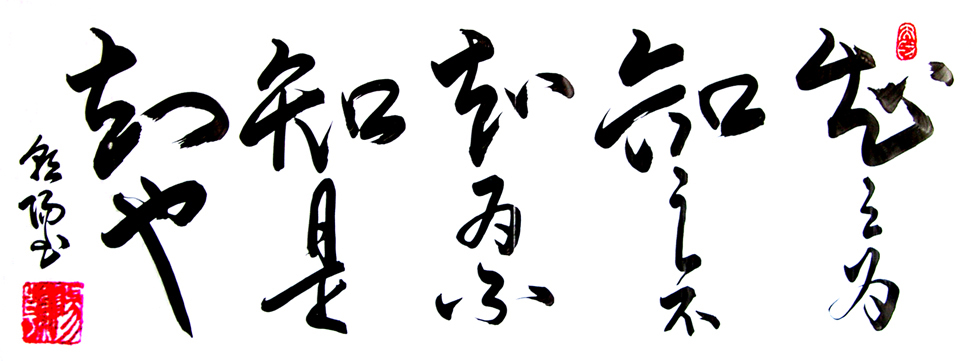2.11 Knowing and not-knowing
子曰、由、誨女知之乎、知之為知之、不知為不知、是知也。
The Master said, ‘You [Yu], shall I teach you what knowledge is? When you know a thing, to hold that you know it; and when you do not know a thing, to allow that you do not know it;– this is knowledge.’
* * *
What do we know? At the absolute level, Laozi pointed out that no “one” actually know any “thing” (see earlier blog discussion on Daodejing Chapter 71). At the more ordinary and worldly level, Confucius said knowledge is: when you know something, you can declare you know it (to your best information and ability); when you don’t know of something, you admit it. Honesty, is an important quality to cultivate to succeed (spiritually speaking) in life: in external interactions, honesty brings credibility; in internal reflection, it brings self understanding. Lack of honesty brings confusion; be honest, and you will proceed in truth.
2.11 知之為知之、不知為不知
子曰、由、誨女知之乎、知之為知之、不知為不知、是知也。
* * *
我们知道些什么呢?在绝对水平,老子指出,没有“我”能知道任何“事”(看之前老子道德经71章的讨论)。 在更普通和世俗的层面,孔子认为知识是:当你知道时,你可以说你知道,当你不知道时,就要承认你不知道。诚实,用于外部的人际交往中,会带来的了信誉用到内部的自我反省上,会带来自我认识。缺乏诚实,就会带来混乱;选择诚实,我们就能在真理中前行。


Leave a Reply